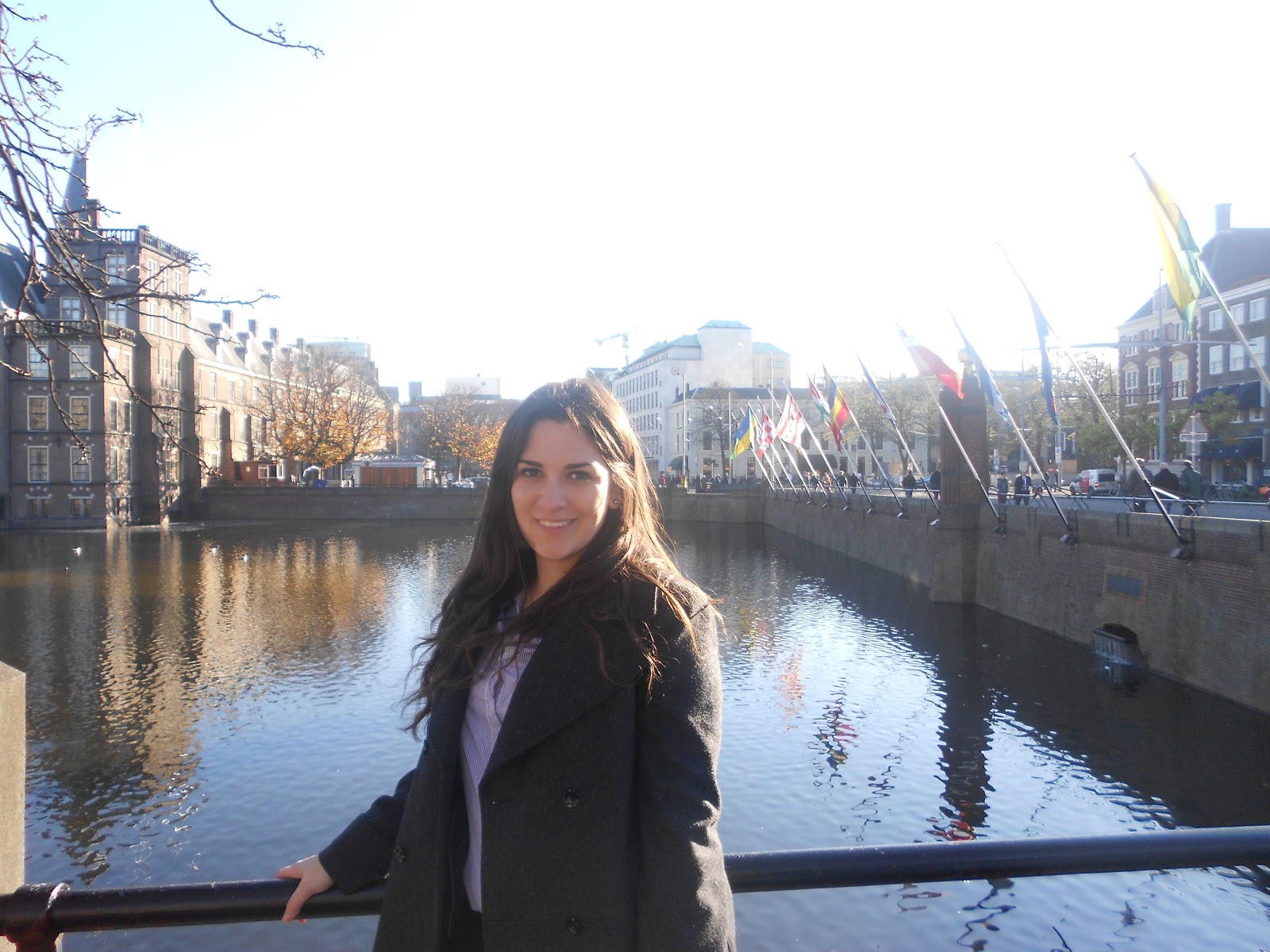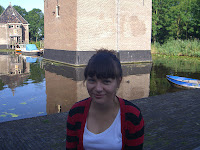Alexdra Naslin is going to share her thoughts and reflections about another exciting day in the Grundtvig project. If you ask who is Alexdra Naslin; she was one of the participants we had a chance to meet through the Grundtvig project. Alexdra is half Russian and half Moldavian, she is currently living in Poland. She has been working in government offices, NGOs, political parties and mass media focusing on the sphere of communication and project management.
 Today we had an intensive and fruitful day which
opened up new horizons and provided us with new information, knowledge and
tools for our future projects. In the first part of the day we had a meeting with Mr.
Hans van Oel, the head of the Integration department at the municipality of The
Hague. He presented us the situation and the current trends of the immigration
in the city of The Hague which has a population of 50% coming from a migrant
descent and the municipal policies on integration of foreigners.
Today we had an intensive and fruitful day which
opened up new horizons and provided us with new information, knowledge and
tools for our future projects. In the first part of the day we had a meeting with Mr.
Hans van Oel, the head of the Integration department at the municipality of The
Hague. He presented us the situation and the current trends of the immigration
in the city of The Hague which has a population of 50% coming from a migrant
descent and the municipal policies on integration of foreigners. We had a chance to discuss with Mr. Hans van Oel, the problematic issues related to immigration, integration, citizenship, anti-discrimination policies and multiculturalism. Mr. van Oel also gave us an excursion in the municipality building. It is a remarkable building all white and has glass ceilings. As we were told the light during day keeps changing in the building, especially in rainy days you can see the rain coming down so beautifully if you just tilt your head up, towards to the ceiling. The transparent walls of the building is symbolizing the openness and transparency of the local government, and offers a big open space for meeting of citizens, for cultural events, exhibitions and press conferences.
In the second part of the day we participated in the project cycle management training organized by UNPO (Unrepresented Nations and Peoples Organization) by Pierre Hegay, the program coordinator. We learned about the Logical Framework Approach in Project Management and stages of project management with the corresponding methods. Working in small groups we applied this project management framework and the tools to the proposed case of economic development in Africa. Through this case study we developed our knowledge and skills in problem analysis ("problem tree analysis") and identification of project strategy, stakeholder analysis and management of stakeholder's expectations and the objectives analysis ("objective tree analysis").
It was a day of learning and exploring, the first part of the day focused on the policy making, implementation, practical problems in The Hague and second part was on logical frameworks on how to tackle these social/ economical issues we face within the society. There is always a room to learn more.










.jpg)






















